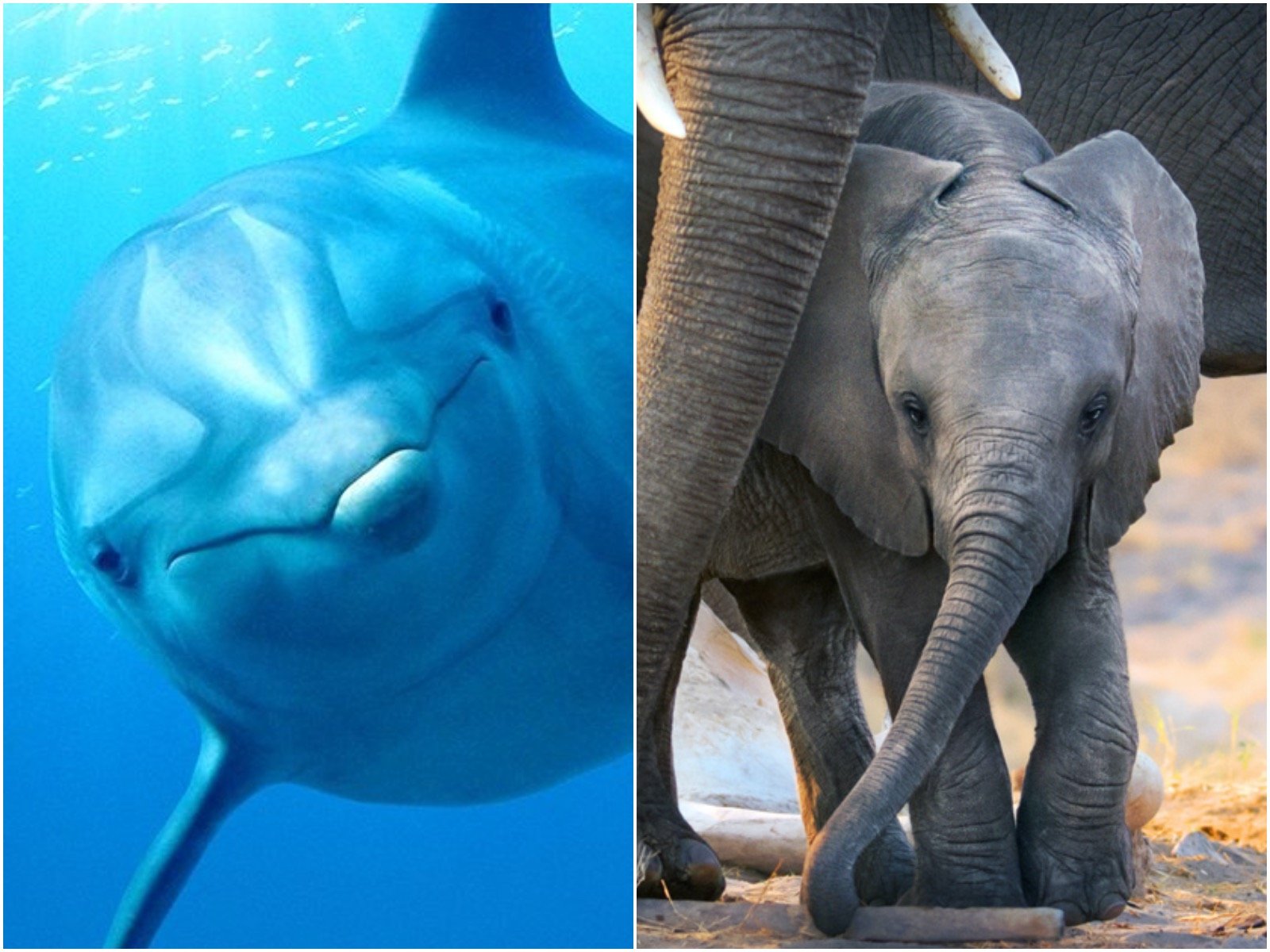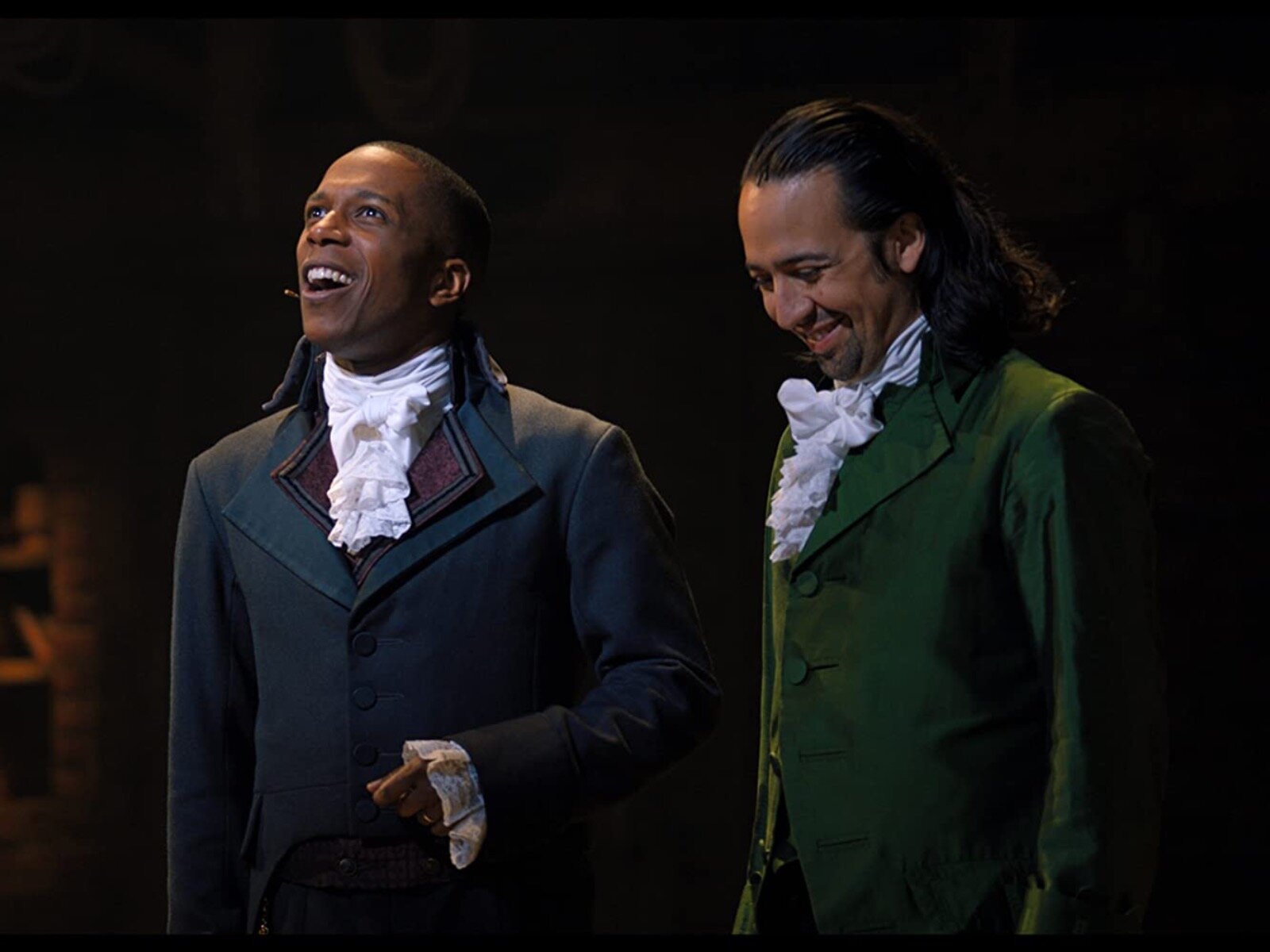Not that anything is currently worthy of theatrical release in the midst of a pandemic, but it’s a shame that Disney quietly bailed on the big screen for its nature documentaries and instead turned them exclusively into streaming filler. (Not that they can be solely blamed: A list of the studio’s lowest grossing movies of the last decade would find a lot of Disneynature docs keeping each other company.) Even stuck on the small screen, though, the wonders of their latest real-world safaris – "Dolphin Reef" and "Elephant," both released this month on Disney+ in time for Earth Day – still have the power to overwhelm and amaze … at least when the human stars get out of their animal stars’ way.
Diving into the depths of the Pacific Ocean near Polynesia, "Dolphin Reef" swims with a bottlenose mother as she attempts to teach her son – named Echo by the filmmakers, perhaps Sega Dreamcast fans – the way of the waves. That entails learning to move with the pod, mesmerizingly swimming in unison just under the whitecaps; fending off sharks and rival groups; and learning to feed oneself and the rest of the group.
While the dolphins get top billing, the rest of their ocean neighbors get to steal the show as "Dolphin Reef" explores their bright and colorful reef home – one that looks so familiar to "Finding Nemo," you half-expect Dory to zip past – and details their intricately interconnected world. A peacock mantis shrimp with spider-like eyes constantly skittles across the reef floor cleaning up mess – one that parrotfish come by to feast upon. One jaw-dropping sequence explores a dark underwater cavern lit by glowing neon life. Yet even that’s outdone by a visiting cuttlefish with the ability to change colors and craftily camouflage itself amongst the reef before turning itself into a hypnotic strobe that somehow isn’t a special effect. Don’t stare too long, though, as one unfortunate crab learns.
Even the dolphin sequences, the most standard and familiar of the bunch, find new angles on the expected, viewing the floating pods collectively suspended and shifting in the currents from above and below, and taking to the sky to watch from a bird’s eye view as Echo learns to trap dinner with mud splashes beautifully blooming into a natural net. Between the BBC’s "The Blue Planet" and "Planet Earth" – which share this doc’s co-director Alistair Fothergill – as well as Disney’s own 2010 "Oceans," these might seem like well-tread waters. Fothergill and fellow helmer Keith Scholey, however, keep finding new fascinating perspectives, creatures and natural feats to keep "Dolphin Reef" fresh and give it porpoise purpose.
"Elephant" is even better. While "Dolphin Reef" regularly wades away from its swimming stars to hang with whales and help fill out its admittedly slim story – and even slighter 77-minute running time – its Kalahari-set colleague hones its focus on one family of African elephants traveling the dessert, following the water and shifting seasons to more lush parts of the territory. Along the way, the herd battles the harsh elements, like muddied oases and desolate salt plains, as well as the rest of the animal kingdom seeing our roaming stars as a snack.
Like "Dolphin Reef," "Elephant" develops its animals into a family of characters: wise old matriarch Gaia, next-in-line mother Shani and her spritely son Jomo. The land-locked installment, however, gives them a true story to tell with a throughline featuring actual life-and-death stakes, a greater sense of danger and legitimate tension that the full circle of life will make an appearance. The doc’s youngest cast members are twice put at deathly risk – once from lions, another from the sun’s unsympathetic glare – while one character even passes away on screen. There’s the old child-traumatizing Disney I remember!
"Elephant" has the thrilling visuals to go with its involving story, capturing the gorgeous sunbaked Kalahari vistas while traveling along with its sizable stars or taking to the air to get the seemingly horizon-less span of their world. Its tracking shots, riding along next to the herd on their trip, are particularly low-key mesmerizing, using the frame's depth to find other wildlife prowling in the front or background, adding to each shot and giving the eye even more to find. Directors Mark Linfield and Vanessa Berlowitz make some really interesting visual choices along the journey too, such as breathlessly edited sequences trekking through the path home in Gaia’s memory.
It’s a humanizing move that unfortunately only underlines the doc’s biggest flaw, one it shares with "Dolphin Reef": humans. Go figure: Humans getting in nature’s way – even in a nature doc.
Lacking confidence in its real stars and its audience, "Dolphin Reef" and "Elephant" load up its breathtaking footage with oxygen-sucking narration – here provided by Oscar-winner Natalie Portman and Meghan, Duchess of Sussex, respectively. Both are talented actresses, but both are saddled with tedious, non-stop voiceover that insists on talking over everything happening.
Little of it actually informs the audience about these animals; instead it just projects cutesy human feelings and modern phrases onto these wild creatures. "To him, this place is a one big carnival," Portman says at one point. Really? Did Echo tell you that, "Dolphin Reef" writers? Later, she explains that Echo "sees himself as a happy predator." No, pretty sure that’s just him trying to survive; you don’t have to apologize for an animal in the wild acting like an animal in the wild. In case that’s not enough needless clutter, "Dolphin Reef" even adds annoying sound effects – like drill sergeant howls for a precisely lined-up crowd of fish or squeegee squeaks when a shrimp cleans his eyes – and an overbearing Steven Price score on top of its majestic creatures.
The Duchess of Sussex, composer Ramin Djawadi ("Game of Thrones," "Westworld") and "Elephant" have greater success – though her voice occasionally does fall into cloying car commercial voiceover, and her asides are even less needed since, unlike many of the strange aquatic critters, elephants are already expressive. A sequence where the herd comes across old elephant bones on their journey, their trunks emotively feeling at the relics, is already moving without Markle telling the audience what they’re already looking at and trying to play amateur psychologist. Still, she never has to embarrassingly yell, "You want some, pal?!" like a rowdy cab driver during a fish fight, so that seems like a win for her – though she still has to narrate a fart, a possible first for the royal family.
Still, nothing – not the voiceover, nor the films’ lack of trust in their audience and their own incredible footage, nor being jilted exclusively to the small screen – can get in the way of Earth’s majesty and mystique. And with "Dolphin Reef" and "Elephant," the animal kingdom’s glory easily overcomes the Magic Kingdom’s gaffes.
"Dolphin Reef": **1/2 out of ****
"Elephant": **1/2 out of ****
As much as it is a gigantic cliché to say that one has always had a passion for film, Matt Mueller has always had a passion for film. Whether it was bringing in the latest movie reviews for his first grade show-and-tell or writing film reviews for the St. Norbert College Times as a high school student, Matt is way too obsessed with movies for his own good.
When he's not writing about the latest blockbuster or talking much too glowingly about "Piranha 3D," Matt can probably be found watching literally any sport (minus cricket) or working at - get this - a local movie theater. Or watching a movie. Yeah, he's probably watching a movie.







